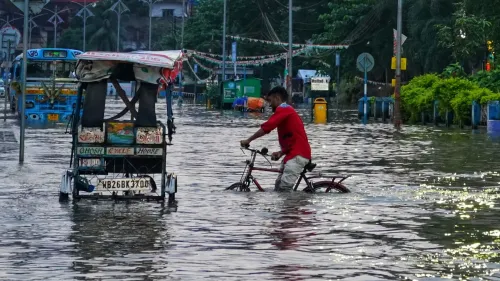
This week in insurance: Insurers scale back on HK boomers, China eyes nonstandard securitisations, Zhibao's new reinsurance unit
Losses from the 7.7-magnitude Myanmar earthquake in March will also be absorbed by reinsurers.
Asia-Pacific's insurance sector from 21 to 25 April noted a mix of demographic shifts, including Hong Kong boomers facing health insurance uncertainties and a change in investment strategies amongst Chinese insurers.
Half of Hong Kong’s boomers intending to move to Greater Bay Area (GBA) cities perceive difficulties in making cross-border health insurance claims or believe that expenses incurred there may not be reimbursable under their Hong Kong-based insurance policies.
In addition, 41% expressed concern about the lack of medical record synchronisation between regions, according to a recent study commissioned by HSBC Life.
Meanwhile, insurance remains as the top three financial tools preferred by Singapore residents for achieving financial growth, yet 39% expressed doubt about using insurance as an investment tool, a CIMB Singapore survey showed.
Shifting focus to China, insurers show increased interest in nonstandard-asset securitisations as they seek alternative investment opportunities amidst a stagnant structured-finance market, according to a report by S&P Global Ratings.
The increasing attractiveness of this investment type is due to originators prioritising faster issuance times, even at the cost of higher funding expenses.
Liquidity-insensitive investors, including insurance firms and banks' wealth management arms, are participating in these transactions, attracted by the ability to tailor assets to meet specific investment preferences.
In terms of risk and catastrophe coverage, losses from the 7.7-magnitude earthquake that struck Myanmar in March and caused damage in Bangkok will mostly be absorbed by global and regional reinsurers, according to a report by S&P Global Ratings.
The report estimates insurance losses for Thai property and casualty insurers at between $600m and $900m.
These figures are significantly lower than past events, such as the $4.5b in claims from COVID-related insurance payouts in 2022 and the $15b in losses from the 2011 floods.
On the corporate front, digital insurance brokerage firm Zhibao Technology announced the establishment of Zhibao Labuan Reinsurance Company Limited.
The newly formed entity received a license from the Labuan Financial Services Authority on 14 April, allowing it to conduct general reinsurance operations outside mainland China.



















 Advertise
Advertise







